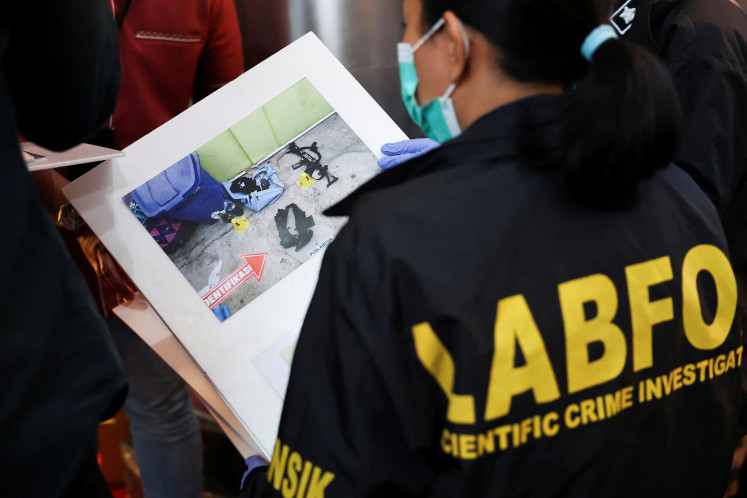Popular Reads
Top Results
Can't find what you're looking for?
View all search resultsPopular Reads
Top Results
Can't find what you're looking for?
View all search resultsMeasles elimination by 2020: WHO
The 11 member states of the World Health Organization (WHO) South-East Asia Region are committed to eliminating measles and controlling rubella and congenital syndrome (CRS) by 2020, as stated at the 66thSession of the WHO Regional Committee for South-East Asia, on Friday
Change text size
Gift Premium Articles
to Anyone
T
he 11 member states of the World Health Organization (WHO) South-East Asia Region are committed to eliminating measles and controlling rubella and congenital syndrome (CRS) by 2020, as stated at the 66thSession of the WHO Regional Committee for South-East Asia, on Friday.
The WHO estimates that US$800 million is needed to achieve this goal.
WHO Regional Director for South-East Asia, Samlee Plianbangchang, said an estimated 8 million children in the region were not protected against measles.
'The measles and rubella vaccines are safe, effective and inexpensive. The administration of a combined measles rubella vaccine can eliminate both diseases cost effectively,' he said in a statement made available to The Jakarta Post on Saturday.
Plianbangchang further said, 'Measles outbreaks are a major obstacle. I believe that with political will and a strong focus on the vulnerable and hard-to-reach populations, we can eliminate measles and control rubella in the South-East Asia region by 2020.'
Over 70,700 children died of measles in 11 countries in the region, comprising of Bangladesh, Bhutan, Democratic People's Republic of Korea, India, Indonesia, Maldives, Myanmar, Nepal, Sri Lanka, Thailand and Timor Leste.
This constitutes about 45 percent of global measles deaths.
Counties in the region have achieved a 63 percent decline in the measles incidence rate from 69.9 per million to 25 per million population between 2000-2011.
'We have demonstrated that polio eradication is possible even under challenging circumstances. A lesson learned from historical achievements will play a critical role in achieving measles elimination,' said Plianbangchang.
To reach the 2020 measles elimination target and rubella control, governments will need to achieve and maintain 95 percent population immunity against these diseases within each district through routine immunization and/or supplementary campaigns. (ebf)










